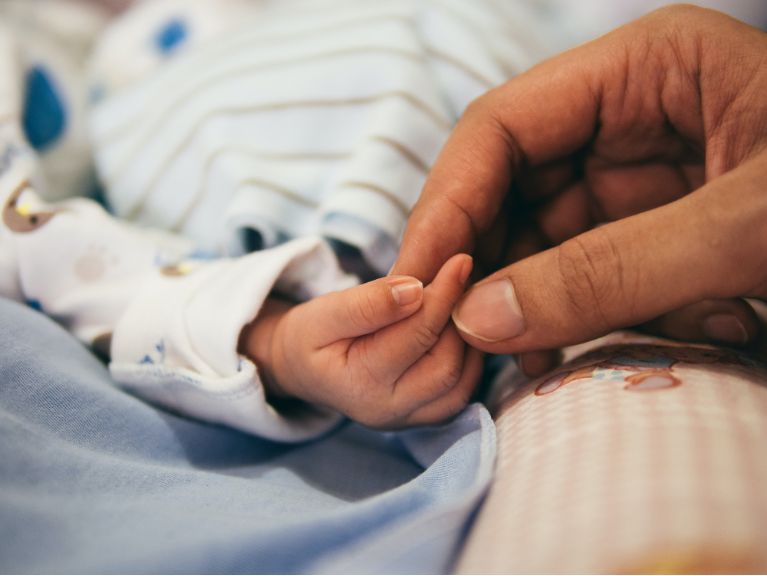Early release of super explained
28 Mar 2024 5 min readYour super is designed to fund your retirement, but did you know that in some personal circumstances or instances of financial hardship, you may be able to access your super early?
In this article, we explore 4 ways to gain access to your super before you retire:
- on grounds of severe financial hardship
- on compassionate grounds
- through the first home super saver (FHSS) scheme
- if you are temporarily unable to work or permanently incapacitated
Though no longer available, we'll also touch on COVID-19 early release payments and how — if you'd like to — you can re-contribute these funds to your super.
Early release of super for severe financial hardship
If you're experiencing severe financial hardship, you may be allowed to access some of your super funds earlier than usual. Eligibility for access due to severe financial hardship depends on your age in relation to your preservation age.1
To be eligible (prior to your preservation age), you'll need to:
- currently (and for the last 26 consecutive weeks) be receiving income support payments from Centrelink or the Department of Veteran's Affairs (DVA)
- be unable to meet reasonable and immediate living expenses
- have substantial evidence of your debts or unpayable expenses.
The application process may differ between super funds. If you're applying with NGS, you'll need to complete our Early release of superannuation benefits on grounds of severe financial hardship form.
When applying, you'll need to provide:
- your Centrelink customer reference number (CRN)
- certified proof of your identity (ID)
- proof of your current weekly income and expenses — no more than one month old — relating to yourself, your partner and your dependants
- proof of outstanding debts, like copies of overdue notices or bills no more than one month old
- a signed statutory declaration
- an explanation of how your current circumstances are impacted due to severe financial hardship.
Bear in mind that the funds taken out of your super early are paid and taxed as a normal super lump sum payout. You'll be generally taxed at a rate depending on your age, income, and the components of your super lump sum.
Early release of super on compassionate grounds
If you have a terminal illness or permanent incapacity, you may be able to access your super early on compassionate grounds.
In some cases, you can also withdraw your super early to pay for your dependant's expenses. For early access on compassionate grounds, a person is considered your dependant if they are your spouse, child, a person you are in an interdependent relationship with, or a person who is financially dependent on you.
The ATO has clear limitations for those wanting to access super early under compassionate grounds. Conditions for access for medical treatment and transport, disability, and home sale prevention are outlined on the ATO website. This option is designed to help pay for:
- medical treatment and transport for you or a dependant
- a home loan or council rate payment so you don't lose your home
- modification in your home or vehicle to accommodate you or your dependant's severe disability
- palliative care for you or a dependant with a terminal illness
- burial or funeral expenses for a dependant.
Unlike severe financial hardship payments, the release of super on compassionate grounds is processed by the Australian Taxation Office (ATO), and applications can be submitted through myGov or via a paper form on request.
If you’re considering accessing super early on compassionate grounds, there are a few conditions outlined by the ATO that you need to meet.
You must:
- not have paid for your expenses yet (you can't access your super early to offset what you've already spent)
- be unable to afford part or all of the expense without early access to super (i.e. you're not in a position to get a loan, use your savings, or sell your assets)
- be a citizen or permanent resident of Australia or New Zealand
- provide all the required supporting evidence of your unpaid expenses (e.g. invoices and quotes detailing specific bills and family living expenses).
Early access to super on compassionate grounds applies only for any unpaid expenses you may have. And, unlike early access under financial hardship, applying on compassionate grounds means you can only withdraw an amount deemed appropriate by the ATO to meet your unpaid expenses.
Note that there are different regulations surrounding early access to super between the states and territories in some cases based on the type of fund you are in. This does not apply to NGS. A Super Specialist may help you determine how you can gain early access to your super based on your location.
First home super saver scheme
The first home super saver (FHSS) scheme allows you to make and later withdraw concessional (before-tax) and non-concessional (after-tax) contributions into your super to help you purchase your first home.
Under this scheme, you can release part of the funds from your super to pay for your first home, even if you are under preservation age. If you're successful in applying for the FHSS scheme, you can release a maximum of $15,000 of your voluntary super contributions from any one financial year or up to $50,000 in contributions across all years. This means couples can potentially access up to $100,000 for the purchase of their first home.
Note that to apply for early release of your funds under the FHSS scheme, you will need to live in the property you buy (or intend to) for at least 6 of the first 12 months you own it.
For more details on how the scheme works, visit our FHSS scheme page.
COVID-19 and super
During the initial stages of the COVID-19 pandemic, the ATO enabled the early release of super for those suffering financial struggles. However, the ATO is no longer accepting such applications.
The government is now offering a super re-contribution scheme to help Australians rebuild their retirement funds after COVID-19. The scheme exempts your contributions from your annual after-tax contributions cap, meaning you can return the funds you took out without impacting your contribution limits. The re-contribution scheme is available from 1 July 2021 to 30 June 2030.
To apply to re-contribute COVID-19 early release payments, you'll need to fill out and lodge the ATO's approved form. You can only re-contribute funds equal to or less than the amount originally released under the COVID-19 early release of super program. Importantly, you won't be able to claim a deduction on your income tax return for your re-contributed amount.
Frequently asked questions
When can I access my super?
Typically, to access the funds in your super account, you'll need to meet a 'condition of release'. Standard conditions of release include:
- ceasing employment on or after age 60
- turning 65 – even if not retired
- retiring at or after preservation age
- reaching preservation age and starting a Transition to retirement income stream.
There are also other “special circumstances”, for example, severe financial hardship, compassionate grounds or taking part in the first home super saver scheme that may allow you to release part of your super benefits.
How can I apply for early release of super?
You can apply to get an early release of your super either with your super fund (under severe financial hardship or the first home super saver scheme) or directly via the ATO website (under compassionate grounds). For each method, you’ll need to meet the eligibility criteria and be able to provide all the necessary supporting documents and contact details for your claim.
If you're not sure if you're eligible, you can chat with our Helpline to explore your options by calling 1300 133 177, Monday to Friday, 8am–8pm (AEST/AEDT).
How long does early release of super take?
The duration of the assessment is largely dependent on the grounds on which you are claiming early release and your ability to provide accurate evidence of your circumstances.
If your application needs to be reviewed by the Australian Tax Office, it can generally take up to 14 to 28 days to assess your eligibility. If successful, the ATO will then forward your application to your superannuation fund for payment.
Your super fund may take longer to provide an approval letter and release your funds. As the application process can differ between super funds, we recommend you contact your provider to discuss their estimated timeframes for meeting a condition of release.
At NGS Super, once you've met a condition of release, you can access your super either via income payments by opening an NGS Income account or as a lump sum payment by completing a Request for withdrawal form.
Can you access super early if you've reached your preservation age and have not “retired”?
Yes, you can access your preserved benefit if you start a transition to retirement income stream when you reach preservation age. Learn more about the NGS Transition to Retirement account.
Our NGS Transition to Retirement (TTR) account is designed for people between their preservation age and age 64 who are still working (either part-time or full-time).
Each financial year, you can get a maximum amount of 10% of your TTR account balance. Many people use this option to transition to part-time work and access their super to support the difference in income while still making super contributions.
Can I still access my super due to COVID?
No. The COVID-19 early release of super program closed on 31 December 2020 and applications are no longer accepted.
However, if you withdrew from your super during this time and are in a position to rebuild your super funds, you can apply for ATO's super re-contribution scheme. Under this scheme, your contributions will be exempt from your annual after-tax contributions cap.
Talk to an expert
Get in touch with the NGS Super team for more information on how to access your super early and if you're eligible to apply online.
The information provided is general information only and does not take into account your personal objectives, financial situation or needs. Before acting on this information or making an investment decision, you should consider your personal circumstances and read our Product Disclosure Statement and Target Market Determinations for more information. You should also consider obtaining financial, taxation and/or legal advice which is tailored to your personal circumstances before making a decision.
Call us on 1300 133 177 if you would like to speak with us further, or you can discuss matters with one of our NGS Super Specialists, or an NGS Financial Planner.





